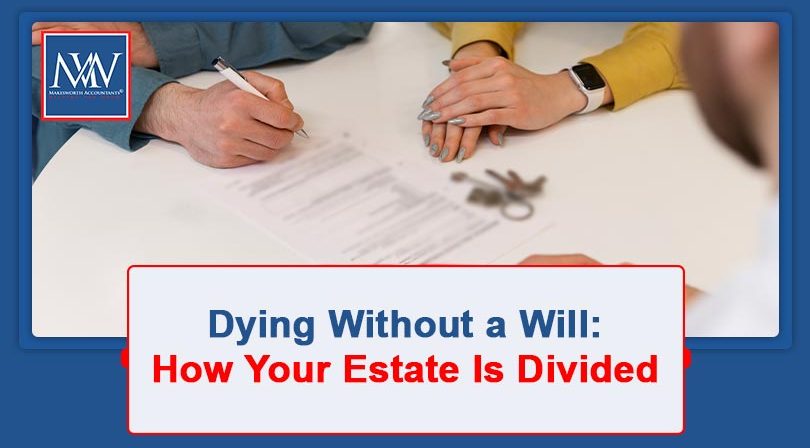
Dying Without a Will: How Your Estate Is Divided
Most people hope their estate will be shared according to their wishes. But if you die without a will (known as dying intestate), the law decides who gets what. The distribution depends on the value of your estate, whether you were married or in a civil partnership, and if you had children.
(Note: These rules apply to England and Wales; Scotland and Northern Ireland have different rules.)
What Happens to Jointly Owned Property?
Property can be jointly owned in two ways:
-
Joint tenants – Both owners together own the whole property. If one dies, the other automatically inherits it. However, the deceased’s share is still considered for inheritance tax.
-
Tenants in common – Each owner has a defined share. Their share doesn’t automatically pass to the other owner; it is distributed under their will or the intestacy rules.
Married or in a Civil Partnership (No Children)
-
A spouse or civil partner inherits the entire estate, even if the couple was separated at the time of death (unless divorced).
-
Unmarried partners do not inherit under intestacy.
-
The surviving spouse or civil partner must outlive the deceased by at least 28 days to inherit.
Married or in a Civil Partnership (With Children)
-
The spouse/civil partner inherits:
-
All personal possessions.
-
The first £322,000 of the estate.
-
50% of anything above that.
-
-
The remaining 50% is shared equally between the children.
-
If the estate is worth less than £322,000, the spouse/civil partner inherits everything.
-
If children are under 18, their share is held in trust until adulthood.
Children but No Spouse or Civil Partner
-
The estate is split equally between the children.
-
If a child has already passed away, their own children (the deceased’s grandchildren) inherit their share.
No Spouse, Civil Partner, or Children
If there are no immediate family members, the estate passes to relatives in this order:
-
Parents
-
Siblings
-
Grandparents
-
Uncles and aunts
For example, if a parent is still alive, they inherit everything—even if there are siblings or other relatives.
No Surviving Relatives
If no family members are found, the estate passes to the Crown. This process is called bona vacantia.
Can the Distribution Be Changed?
Yes. Sometimes the intestacy rules don’t give the best outcome—for instance, they may trigger unnecessary inheritance tax.
Relatives can agree to change how the estate is divided within two years of death by making a deed of variation. This acts like “writing a will from the grave,” allowing assets to be reallocated in a more tax-efficient way.
✅ Key takeaway: Without a will, you lose control over who inherits your estate. Writing one ensures your wishes are followed and may also reduce inheritance tax liabilities.
For more information, Book a Free Consultation
Need Accountancy Support?
For information on bespoke training, or if you have any other questions for Makesworth Accountant, please fill in your details below
















 151
151